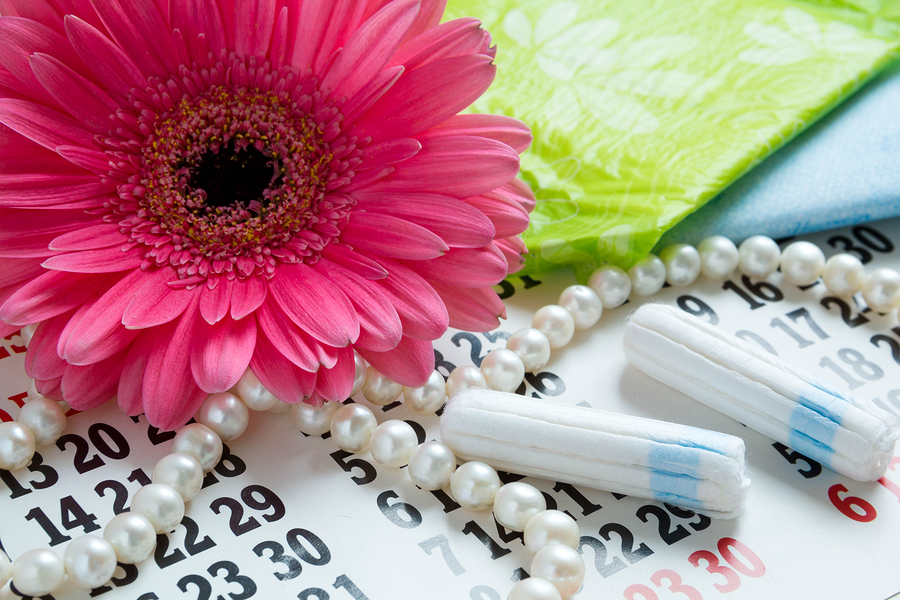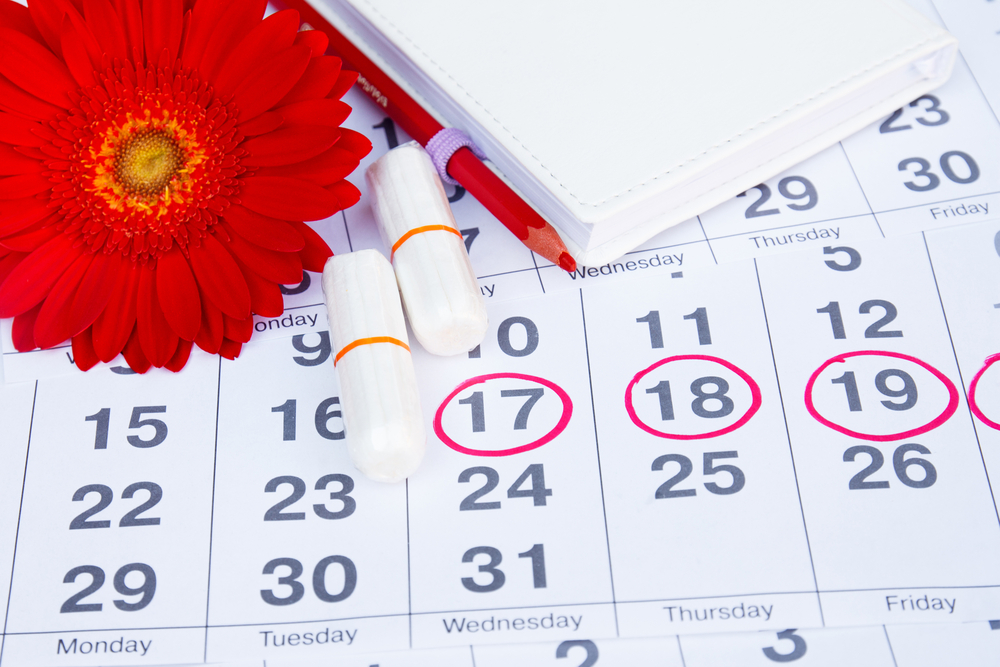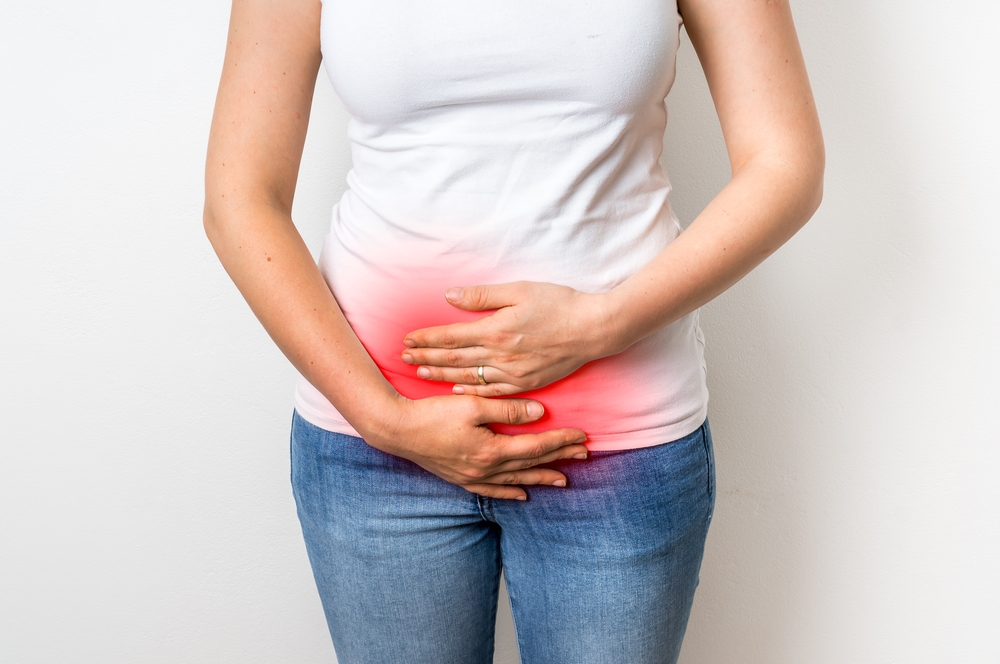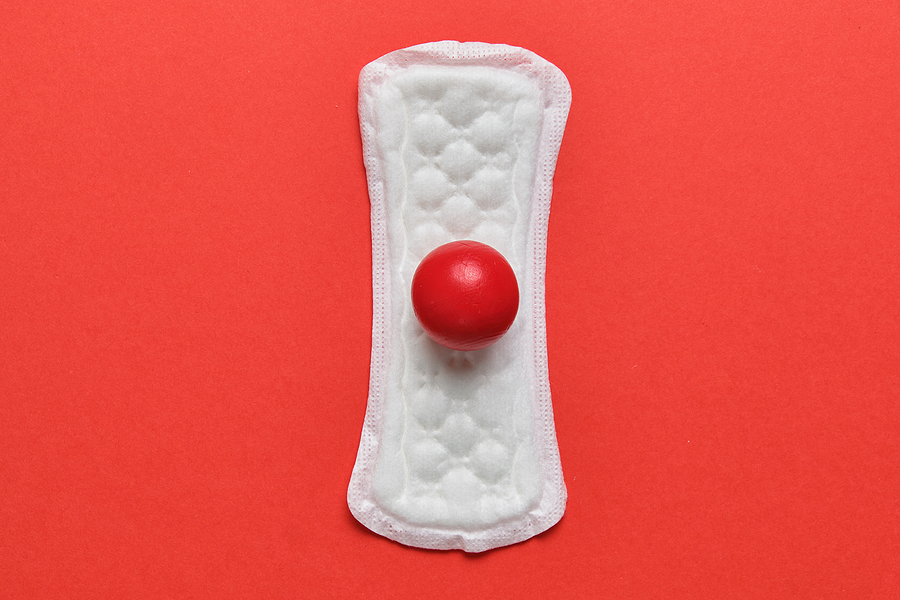- Your period is a monthly health report card
- Menstrual cycles highlight your “best times of the month”
- Regular cycles help inform your health decisions
I’m sure there are things you don’t enjoy about your period; I’m right there with you sometimes. But let’s flip the usual conversation that highlights the negative aspects of your monthly cycle and embrace the positives. Yes, there are postives. Not everything about your period has to be viewed as bad.
When I talk with other women about the benefits of our monthly periods, many women will roll their eyes; some of them laugh, and others will say “It was called ‘the curse’ when I was a young girl.”
But think about it for just a minute. Your menstrual cycle offers valuable communication about your health. It’s essential to helping you learn, plan for, and make choices about your personal well being, mood, exercise — and naturally, your sex life.
In addition, your regular menstrual period will let you know that your hormones are in balance. This is so important when you realize that about 80 percent of the women that we see in our clinic experience symptoms relating to an imbalance of their hormones. If this issue is not examined, it can lead to worsening premenstrual syndrome symptoms (PMS), feelings of fatigue, and weight gain. It can also lead to an increased risk for other more serious health issues. When you miss early signs of hormonal imbalance, you may also miss the opportunity to find relief.
Your menstrual cycle is distinctive to you. I encourage you to take a better look at the benefits that I have outlined below. This will help you to determine how your cycle affects your health and well-being in each area. Remember, if you are taking birth control pills, your cycle is regulated by the pill, rather than natural hormones, so you will not experience all of the benefits outlined below. Here are some of the most essential health benefits of your period:
- You can know when your hormones are in or out of balance.
- You can learn about your bones, thyroid, and metabolic wellness.
- You can identify your best days for sexual arousal and enjoyment.
- You can leverage improved energy for your exercise and fitness routine.
- You can inform your health decisions about your life.
- You can create emotional wellness.
What is a normal period? Regular vs. irregular
We often hear that the “regular” cycle is 28 days long, and many women’s bodies are like clockwork this way. But many others have a cycle of completely different lengths. A cycle lasting anywhere from 21 to 36 days, if you’re regular, is also perfectly normal for many women.
What can you do about irregular periods?
If you suffer from irregular periods or PMS, your body is telling you that it may not be balanced to its fullest extent. This is an opportunity to bring yourself back into balance, so you can enjoy the health benefits of a regular menstrual cycle.
Your menstrual period provides a “monthly update” about your hormonal, reproductive, thyroid, and metabolic functioning
I want you to understand and embrace that regular periods indicate that your body is ready to become pregnant! But in addition to reproduction, your menstrual cycle rhythms reflect a balance in other bodily systems and functions.
This is because every month your period is the result of a coordinated discussion between your brain and your ovaries. The hypothalamus and pituitary glands are two of the areas that direct this conversation. They are also closely connected to the adrenal glands, the thyroid, and the digestive system along these same pathways. When one system is disrupted, then the other systems may suffer. Changes to your period or irregular periods are usually the first indications of a disrupted signal along the pathway, with implications that can be felt throughout your entire body.
For example:
- Hormonal imbalance. Normal menstruation tells you that the body is in homeostasis, producing acceptable levels of sex hormones optimal for reproduction. When these hormones are in balance, you feel excellent, are energetic, sleep effectively, and take interest in sex. When you’re under constant stress, your hormones generally end up out of balance. An irregular period is one of your body’s first strategies in asking for assistance.
- Bone health. The natural balance among the sex hormones (estrogen, progesterone, and testosterone) helps guarantee both healthy periods and healthy bone rebuilding. So does the balance among your other significant hormones (insulin, thyroid, parathyroid, and stress hormones). In fact, your bones are actually an endocrine, or hormone-generating, organ. If the balance is disrupted, your periods may become irregular—providing a great clue that the build-up of your bones may not be keeping pace with the breakdown of your bones.
- Thyroid function. Centrally located between the brain and rest of the body, your thyroid acts similar to a “transfer station.” It controls the rate of function for every cell and gland in your body, including growth, repair, and metabolism. It is also known as the master gland. When your thyroid is underactive, or not functioning at the proper level, it can lead to fatigue, weight gain, depression, high cholesterol, and other symptoms. If you have a healthy thyroid and it is doing its part, you are more likely to have regular periods.
- Healthy weight maintenance. Fat, particularly around the waist, also acts similar to an endocrine organ by creating estrogen (and also the hormone leptin, which helps to regulate your energy intake and expenditure, including appetite). Estrogen dominance and insulin resistance are two types of hormonal imbalance that are associated with extra body weight and menstrual irregularities. In addition, being underweight as a result of strict dieting, overtraining, or other extreme stress (physical or emotional), can cause menstrual irregularities, including amenorrhea (lack of periods).
- Adrenal function. Any time we are under stress, no matter what the origin (actual danger, personal relationships, work, environment), there is certainly elevated activity along the axis between the brain and adrenal glands. This generates stress hormones, like cortisol, that help us respond to a threat. Cortisol indirectly impacts the balance between sex hormones like estrogen, progesterone, and DHEA. Because of this, many females will skip or have irregular periods or suffer from PMS when they’re under pressure – which might be reduced if we support our adrenals by dealing with our stressors.
I want you to understand that irregular periods are not unusual. We do, however, advise trying to keep your healthcare practitioner aware of any marked changes in your menstrual cycle as well as your wellness.
Our period highlights our best “time of the month”
Timing is everything—and this is also true with your individual menstrual cycle, as you experience fluctuating levels of the primary sex hormones, estrogen, progesterone, and testosterone, in addition to the “behind the scenes” players follicle-stimulating hormone (FSH), luteinizing hormone (LH), and gonadotropin-releasing hormone (GnRH).
Identify best days for sexual arousal and enjoyment
The best days for sexual arousal and enjoyment are the days when your testosterone levels are at their highest. Many women find that the increase in testosterone will give a positive effect to their sexual desire and enjoyment. It’s amazing that nature is working for you with a clear purpose in mind—these are also the days just before you release an egg! This way, you can use the best timing if you are considering natural family planning or contraception options. Many women explain having a heightened feeling of their sexuality right at the time they ovulate.
How can you find your “high libido day?” Using the “textbook” cycle of 28 days, with day 1 being the first day of menstruation, you would see:
Days 1–14 Your interest in sex, the easiness by which you’ll be able to reach sexual peak, and even the intensity of the orgasm all grow with the testosterone increase during this period.
Days 13–14 Testosterone peaks on about day 13 and remains high on day 14—which is when ovulation happens for most women. Studies show that during this time, women feel more confident sexually and they look and feel their best. And here’s another scientifically based item—men find women more desirable during these days. Some studies speculate this is related to pheromones.
End of your cycle You might also see a rise in your libido from about day 24 to the finish of your cycle, although testosterone is commonly low at this point. This could be because of the enhancing effect a thickened uterine lining has on your nerve endings, making you feel more aroused.
Increased energy for exercise and fitness
Being attuned to your menstrual cycle can also benefit your healthy lifestyle by allowing you to have more energy to exercise on a regular basis. Your hormone levels will impact the type of fuel that is available for working your muscles and what type of workout you find easier to complete. For example, lower estrogen levels favor the burning of glycogen for quick energy. As a result, some women find that in the portion of their cycles when estrogen is lower (typically days 4–11), high-intensity exercise is easier, with lower heart rates and breathing rates.
You can see what works optimally for you by keeping track of your cycle. Do this as part of an exercise journal, in which you record your daily work-outs. In addition to recording all your fitness activity, you can note how easy or difficult the activity felt for you. This will help you make some adjustments based on what you see! You’ll be better able to exercise regularly because you’re in tune with what your body is telling you.
Inform your health decisions
As you saw above – and might have already been conscious of – females are most fertile on day 14, if you have a 28 day cycle. I encourage you to keep this in mind as you make any timing-based actions about pregnancy, natural family planning, or contraceptive use.
You can also use the timing of your menstrual cycle to make other informed health decisions. For example, the National Institutes of Health researchers have shown that the cholesterol levels in women correspond to monthly changes in estrogen levels. The researchers suggest that this natural variation might indicate a need to take into account the phases of a woman’s monthly cycle before evaluating her cholesterol measures. On average, the total cholesterol level of the women in the study varied 19 percent throughout the course of the menstrual cycle. This is enough of a difference to make you more aware of where you are in your cycle before you have your cholesterol checked.
Another important note is that research has shown that having a mammogram screening is most accurate if it is performed during the first week of your menstrual cycle.
True or false?
Is it true that women’s cycles sync with each other when they live together?
Is it true that women’s periods correspond with phases of the moon?
Both are true.
Create emotional wellness
I know many women who are much more introspective during the week of their period and spend some quiet time for themselves. They might read or sew, or catch up on TV shows or movies—things that aren’t as action oriented as their typical daily life may be. They often also describe having more fatigue during this time, almost as though they are being required to be more quiet. But with our fast paced society this is often ignored as women plow through this very inner time.
I’ve also heard many women describe a burst of creativity in the second week of their cycles. Still others recognize they need extra vitamins or minerals to counteract their cravings just before their periods.
“The hormonal recipe that kicks in on or about day three or four triggers a significant improvement in how women feel and look.” — Rebecca Booth, M.D., author of The Venus Week: Discover the Powerful Secret of Your Cycle … at Any Age.
Here’s another thought to consider: It’s important to identify your PMS days in advance so that you can help to prioritize your daily activities and provide yourself with extra support as needed.
I genuinely believe that all females can benefit from the all-natural rhythms of their cycles by growing to be “in-tune” with their bodies. By seeing the patterns that emerge, it is possible to discover effective methods for managing and maximizing them. And you can begin to make friends with your monthly cycle. You can eat the foods that are right for your body, sleep a refreshing eight hours a night, and get moderate but vigorous exercise. You can choose to take herbs and nutritional supplements that will be helpful for your particular biology. You can take the opportunity to explore the psychological issues that might be adding unnecessary stress to your life, and find new ways to get the support that you need and deserve.
To my surprise, I discovered that my menstrual cycle had been hormonally developed to include an inspiring, fruitful time in mid-cycle then a quiet, calm, inward-turning time as my cycle reached its finish. After balancing my hormones, I could finally enjoy the ebb and flow of my monthly cycle, appreciating its rhythms and shifts as women have done for generations.
My own experience brought home the huge role hormones play in how we feel. Now when I see women every day with concerns, questions, and frustrations about their hormones, I really get it. So when I hear females inform me that their hormonal struggles shape their lives – that they plan their month around mood swings and cramps, or that perimenopause is making them really feel old before their time – I get that, as well.
You can help yourself to balance your hormones naturally and this will make you feel like yourself again. We all deserve no less. And you can reverse the curse, once and for all.







